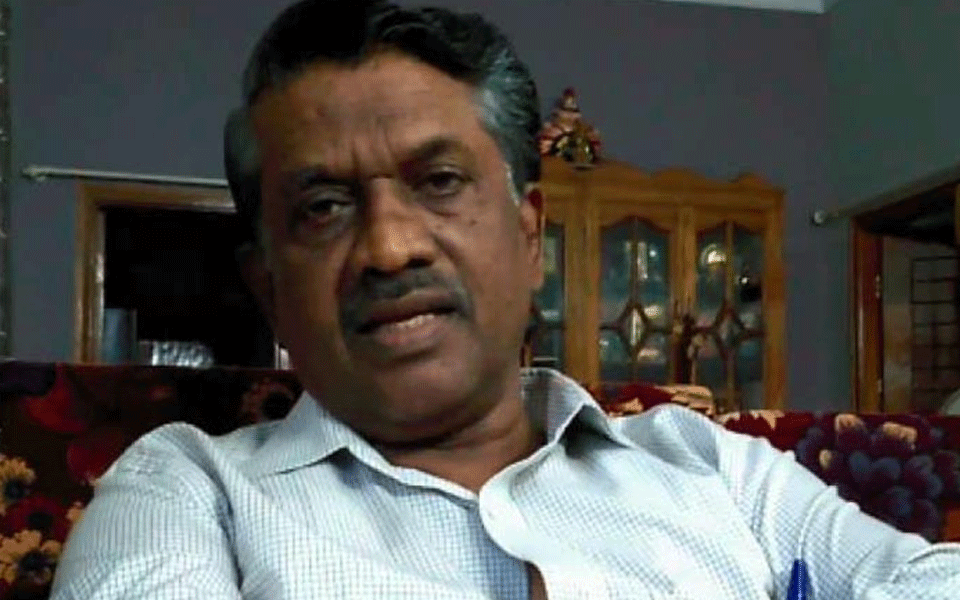Vijayapura, November 10: Writer and Varthabharati columnist Ramzan Darga said that much against to some misconceptions, Tipu Sultan was not an anti-Hindus and Shivaji was not anti-Muslims.
Giving a special lecture during Tipu Jayanti programme here on Saturday, he said that as the British manipulated the history, some people have been making false propaganda that Tipu was anti-Hindus for their political gains. Tipu was the first freedom fighter. He had toiled hard for the empowerment of dalits and backward classes. It was not fair to oppose Tipu Jayanti just for political reasons, he said.
While fighting against British, the Nizams of Hyderabad had joined hands with the British. But Tipu had fought against British army single handedly. The Britishers had manipulated the history for their benefits. Keeping that history, some people have been opposing the jayanti programme, he said.
Shivaji was not just the king for the Hindus. He had built masjid just beside his home. In the same way, Tippu had protected the Sringeri Sharada Peetham. Even today, prayers and poojas were being conducted in more than 156 temples in the name of Tipu Sultan every day. Muslim youth should also celebrate Shivaji Jayanti. Shivaji had appointed total 23 Muslims as his officers in his state, he said.
When he was the chief minister, Jagadish Shettar had appreciated the contribution of Tipu in the book written by Prof B. Sheik Ali and published by the government. But they have been opposing it just for votes. Both Hindus and Muslims should be careful about such dual personalities and parties, he said.
Let the Truth be known. If you read VB and like VB, please be a VB Supporter and Help us deliver the Truth to one and all.
Panaji (PTI): As part of a crackdown against tourist establishments violating laws and safety norms in the aftermath of the Arpora fire tragedy, Goa authorities on Saturday sealed a renowned club at Vagator and revoked the fire department NOC of another club.
Cafe CO2 Goa, located on a cliff overlooking the Arabian Sea at Vagator beach in North Goa, was sealed. The move came two days after Goya Club, also in Vagator, was shut down for alleged violations of rules.
Elsewhere, campaigning for local body polls, AAP leader Arvind Kejriwal said the fire incident at Birch by Romeo Lane nightclub at Arpora, which claimed 25 lives on December 6, happened because the BJP government in the state was corrupt.
An inspection of Cafe CO2 Goa by a state government-appointed team revealed that the establishment, with a seating capacity of 250, did not possess a no-objection certificate (NOC) of the Fire and Emergency Services Department. The club, which sits atop Ozrant Cliff, also did not have structural stability, the team found.
The Fire and Emergency Services on Saturday also revoked the NOC issued to Diaz Pool Club and Bar at Anjuna as the fire extinguishers installed in the establishment were found to be inadequate, said divisional fire officer Shripad Gawas.
A notice was issued to Nitin Wadhwa, the partner of the club, he said in the order.
Campaigning at Chimbel village near Panaji in support of his party's Zilla Panchayat election candidate, Aam Aadmi Party leader Kejriwal said the nightclub fire at Arpora happened because of the "corruption of the Pramod Sawant-led state government."
"Why this fire incident happened? I read in the newspapers that the nightclub had no occupancy certificate, no building licence, no excise licence, no construction licence or trade licence. The entire club was illegal but still it was going on," he said.
"How could it go on? Couldn't Pramod Sawant or anyone else see it? I was told that hafta (bribe) was being paid," the former Delhi chief minister said.
A person can not work without bribing officials in the coastal state, Kejriwal said, alleging that officers, MLAs and even ministers are accepting bribes.





